Many new bird owners may not know the symptoms of bird sickness, and birds are often good at hiding them. There are a few tell-tale signs you should watch for to have the best chance of saving your pet from a life-threatening ailment. If your bird exhibits any of these symptoms, contact your veterinarian as soon as possible.
Signs of Sickness
Birds are sensitive and intelligent creatures. They are also usually creatures of habit. While they may try to hide their symptoms, paying close attention to their daily activities, behavior, and general attitude. Trust your gut. If you suspect something is off with your bird, it's better to speak to your vet before things get worse. As a bird owner, there are some common symptoms should all be on your radar.
Mynah Bird: Bird Species Profile
Bird Droppings
It's not the most pleasant task to monitor your bird's droppings, but they can clearly show that something may be wrong. While the color of your bird's droppings may vary slightly depending on what you feed it, you should watch for droppings that are yellow, rusty brown, or tarry black.
These can be indicators of internal bleeding or other serious problems. Pay attention to any major changes in the consistency of your bird's droppings. Whether they're too runny or too firm, they can cause complications for your pet.
Ruffled Feathers and Weight Loss
Birds that sit with their feathers fluffed out for prolonged periods of time are often affected by respiratory problems or other disorders. Ruffled feathers may also conceal weight loss, which can be life-threatening for a bird. If you observe this behavior in your pet for more than a day or so, you should contact your vet as soon as possible.
Weight loss can be devastating to a bird's health, not only in terms of reduced strength but inhibition of organ functions as well. Weigh your bird regularly so you'll know if your pet is having trouble maintaining its weight.
Red, Inflamed, or Runny Cere or Eyes
Your bird's cere is what you might perceive as its nose; it's the little patch above the beak that holds the nostrils. Pay close attention to your bird's cere. If you observe any redness, inflammation, or discharge, there's a good chance that your pet could be seriously ill. Make sure to keep your bird wrapped up and warm on the way to the vet. Likewise, If your bird's eyes look cloudy or there's a discharge coming from them, the bird could be affected by a respiratory, nervous, or muscular disorder.
Reduced Appetite
Birds have an extremely high metabolism, so it's vital that they receive adequate nutrition every day. If your bird stops eating and begins to lose weight, it may be a sign of an intestinal blockage or impaction, in which case it could die very quickly without medical attention. Make sure to clean out the bottom of your bird's cage every day before you feed it. This provides an easy way to monitor food consumption, as well as changes in droppings.
Open-Mouthed Breathing
Respiratory problems are among the most common bird sicknesses and, unfortunately, the most serious. If you see your bird breathing with its mouth open while it's at rest, there's a good chance that it's not only sick but has been for quite a while. This requires immediate veterinary attention and may lead to hospitalization.
Dirty Feathers
Birds are, by nature, hygienic animals that bathe frequently and preen their feathers daily to keep them clean. If you notice feathers around your bird's face or rump that appear messy or stuck together, it's an indication that your pet could be sick. Monitor the bird's food consumption and droppings closely for a day or so, note any changes, and relay this information to your vet.
Tail Bobbing
As with many common signs of illness in birds, prolonged, repetitive bobbing of the tail can indicate a respiratory infection. Unlike people, birds lack a diaphragm that separates the chest cavity from the stomach. The muscles located at the base of the tail help birds breathe by playing a part in expanding their lungs for air intake.
If a bird is having trouble breathing, the tail muscles work harder, causing the tail to bob up and down. Tail bobbing is often not noticeable until later, more serious stages of illness, so if you see your bird behaving in this manner, call the vet immediately.
Changes in Vocalization
Much like humans, birds that don't feel well often become less talkative than usual. Pay close attention to your bird so that you can learn its normal vocalization patterns. Stay in tune with the way your bird behaves, so you can pick up clues as to the way it feels. If you notice any changes in the frequency or general tone of your bird's vocalizations, monitor it for additional symptoms over the next few days.
Treatment and Prevention
When it comes to your pet bird's health, an ounce of prevention is worth a pound of cure. Birds have very delicate systems, and even a minor illness can turn into a serious threat in the blink of an eye. Early diagnosis can be vital to saving a sick bird's life.
- Examine your bird daily for any signs of infection, and make sure to maintain a close relationship with your vet.
- Provide your bird with toys and a regular exercise routine, which will positively affect its mental health, and talk to your bird (even if it doesn't talk back) so it gets the social interaction it needs.
- It's also important to feed your bird a varied diet to make sure it's getting enough vitamins and minerals. Consult your vet if you're not sure of what foods are appropriate for your particular breed.
- Keep your bird's enclosure clean. While most birds take care of their own personal grooming, it's up to the owner to make sure that any waste is cleaned up promptly and that the bird's food and water are fresh and readily available.
Your bird depends on you to maintain its good health. Make sure to keep tabs on its behavior so that you can keep your little friend around for a long time.
If you suspect your pet is sick, call your vet immediately. For health-related questions, always consult your veterinarian, as they have examined your pet, know the pet's health history, and can make the best recommendations for your pet.
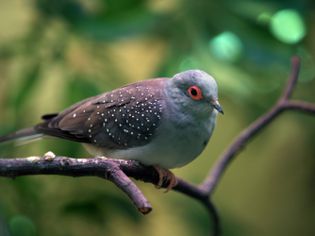
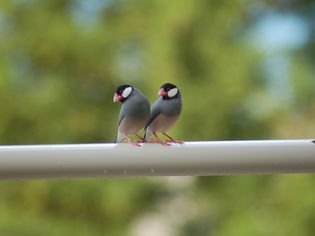
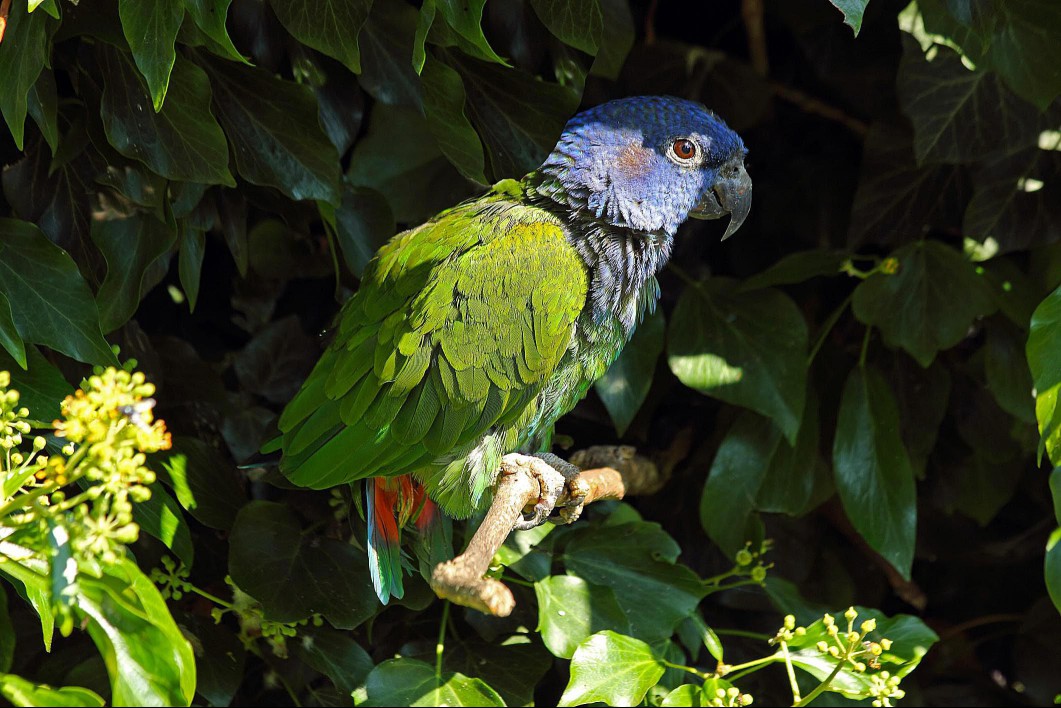
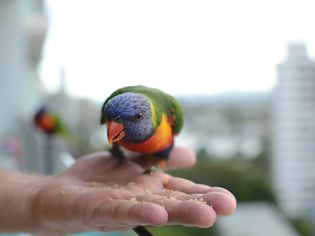
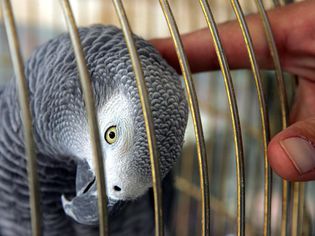


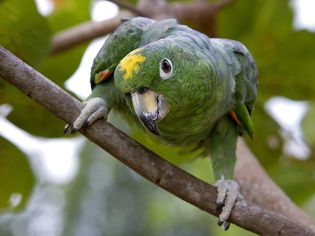

Comments on "Sickness in Pet Birds" :